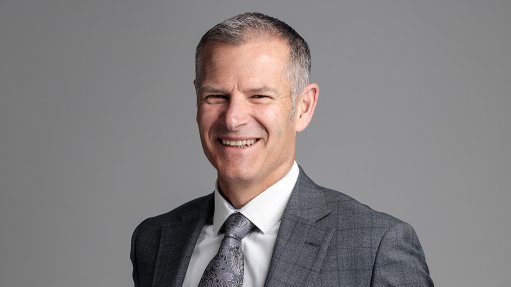What’s changed and what remains the same 20 years after the launch of Google Search?
As Google Search celebrates its twentieth year, the local division has revealed how South Africans use Search, the significant surge in searches and overhauls under way to improve the popular feature.
Google has experienced significant growth over the past two decades, starting from an offering in only one language – English – and indexing about 25-million Web pages.
Now 20 years later, Google indexes hundreds of billions of pages and offers Search in 150 languages in over 190 countries.
“Providing greater access to information is fundamental to what Google does, and there are always more ways it can help people access the information they need,” says Google South Africa country manager Luke McKend.
Despite the rapid and continual increases in the volume of information, languages, features and countries, and the usefulness of Search, as well as the evolvement from text-based search results to the Knowledge Graph, images, videos and local information, besides others, the core principles of Search have remained unchanged in the past 20 years.
“Search continues to evolve as people look for and consume information in new and different ways, but Google’s focus remains the same as it was when Search launched in 1998 – to make the world’s information accessible and useful to everyone,” the company assures.
Google remains focused on providing the user with the most relevant, highest- quality information as quickly as possible, using an algorithmic approach – which took 1 000 person years to develop – and rigorously testing every change it makes.
This is visible in the 200 000-plus experiments Google ran last year, which resulted in more than 2 400 changes to Search.
However, the next chapter of Search will be driven by three fundamental shifts in how Google thinks about Search, including the shift from answers to journeys, from queries to a “query-less way” of obtaining information and the shift from text to a more visual way of finding information.
“To help users resume tasks where they left off and learn new interests and hobbies, Google is introducing new features to Search,” he says.
These include activity cards that help users retrace their search steps, collections to help keep track of search activity, the dynamic organisation of search results to help users see what the next, most relevant information around a query is and a new topic layer in Knowledge Graph.
In addition, the company has introduced Discover to provide relevant information related to a user’s interests, even when there is no specific query requested, with new features including more videos, fresh content and evergreen content and more control over what is seen in the feed.
The last pillar will see Google bring more visual content to Search, including videos, and completely redesigning Google images algorithms to help users find information more easily.
The videos in Search will allow a user to visually preview topics of interest, using computer vision to understand the content of a video and help users quickly find the most useful information.
In addition, Google Lens is being introduced to Google images to help users explore and learn about content they find in their searches, with Lens’ artificial intelligence technology analysing images, detecting objects of interest within them and linking them to product pages.
The Local View
In South Africa, sport topics are the most searched, with hundreds of thousands of queries generated in searches on a daily basis, followed by topical current affairs issues and popular culture queries.
South Africans also use Google for very functional purposes and practical life-hacks in the areas of health, education, employment and life in general, with the ‘near me’ query a popular feature, as people seek medical facilities, pharmacies, food outlets and jobs.
Looking Back
Google was founded by Sergey Brin and Larry Page, starting as a research project in 1995 comprising a search engine to determine the importance of individual pages on the Web.
The then-PhD students at Stanford University named it Backrub before renaming it Google, which is a play on the word ‘googol’ – the number one followed by 100 zeros.
Google now has in excess of 60 000 employees across 50 countries and makes hundreds of products used by billions of people across the world, including YouTube, Android and Google Search.
The global group processes over 40 000 search queries every second on average, translating into over 3.5-billion searches a day and 1.2-trillion searches a year worldwide and equating to more than 20-trillion search queries over the last two decades.
Google has found over 130-trillion Web addresses so far.
Google highlights that more than half of the searches emerge from outside the US, with Brazil, India and Indonesia among the top ten countries with the highest Search volumes.
Further, nearly a third of searches last year came from ‘next billion user’ countries, including Indonesia, India, Nigeria and South Africa.
Half of the more than a trillion searches every year are undertaken on a mobile device.
Comments
Press Office
Announcements
What's On
Subscribe to improve your user experience...
Option 1 (equivalent of R125 a month):
Receive a weekly copy of Creamer Media's Engineering News & Mining Weekly magazine
(print copy for those in South Africa and e-magazine for those outside of South Africa)
Receive daily email newsletters
Access to full search results
Access archive of magazine back copies
Access to Projects in Progress
Access to ONE Research Report of your choice in PDF format
Option 2 (equivalent of R375 a month):
All benefits from Option 1
PLUS
Access to Creamer Media's Research Channel Africa for ALL Research Reports, in PDF format, on various industrial and mining sectors
including Electricity; Water; Energy Transition; Hydrogen; Roads, Rail and Ports; Coal; Gold; Platinum; Battery Metals; etc.
Already a subscriber?
Forgotten your password?
Receive weekly copy of Creamer Media's Engineering News & Mining Weekly magazine (print copy for those in South Africa and e-magazine for those outside of South Africa)
➕
Recieve daily email newsletters
➕
Access to full search results
➕
Access archive of magazine back copies
➕
Access to Projects in Progress
➕
Access to ONE Research Report of your choice in PDF format
RESEARCH CHANNEL AFRICA
R4500 (equivalent of R375 a month)
SUBSCRIBEAll benefits from Option 1
➕
Access to Creamer Media's Research Channel Africa for ALL Research Reports on various industrial and mining sectors, in PDF format, including on:
Electricity
➕
Water
➕
Energy Transition
➕
Hydrogen
➕
Roads, Rail and Ports
➕
Coal
➕
Gold
➕
Platinum
➕
Battery Metals
➕
etc.
Receive all benefits from Option 1 or Option 2 delivered to numerous people at your company
➕
Multiple User names and Passwords for simultaneous log-ins
➕
Intranet integration access to all in your organisation


















